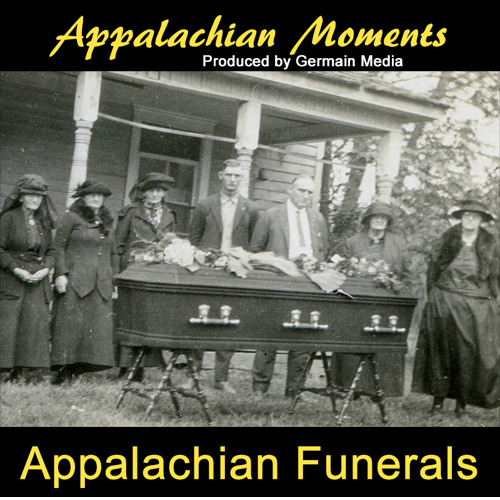New Appalachian Moments blog post by Scott Ballard
Did you ever wonder what we did before funeral homes? Well, in Appalachia there were several traditions and rituals involved when someone passed away.
First of all, there was not a ready made supply of caskets. So, when someone died, a custom casket was built. The family washed and dressed the body, and the deceased was usually placed on a cooling board in the parlor for several days so that all could make the trip to pay their last respects. The term funeral parlor comes directly from that room in the home.
Clocks were stopped at the time of death and mirrors were taken down or covered so that the spirit of the deceased was not caught in the looking glass. The family might wear black for a year and even longer. Why? Well, you wore black as a sign of mourning and to appear as a “shadow” so the dead person’s spirit would not enter your body.
The material and the building of a casket, and the labor involved, was not something the family of the deceased paid. It was all done without any expectation of money changing hands. Neighbors helping neighbors was a way of life then.
The deceased was never left alone…people were assigned to stay up all night with the body. One fan in our Germain Media family commented that that it represented a special time to say goodbye to their family member or friend…and there was something about the quietness that brought peace…
Sitting with a body was also a form of respect. It may have also been adopted from the Jewish tradition of sitting with a dead body until burial. This is called shemira, which means guarding or watching.
Putting pennies on the eyes is an Ancient Greek tradition, where coins would be placed over the eyes of the dead so they would be able to pay the toll to the ferryman on the River Styx.
Without giving it too much thought, we often assumed an “undertaker” was called that because he took someone under the ground. But that is what we get for assuming. The word “undertaker” is simply someone who undertakes a task but it has been a euphemism for “funeral director” since the late 1600s.
In the end, the dead were carried out of the house feet first, in order to prevent the spirit from looking back into the house and beckoning another member of the family to follow. And hey, the truth is…whether you’re planting daisies or pushing them up… Father Time is undefeated! Please like, comment and share this post and, as always, thanks for spending some time with us. If you’d like to hear the audio version, click below!

